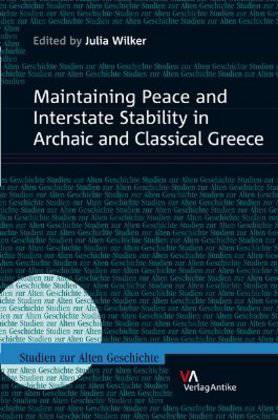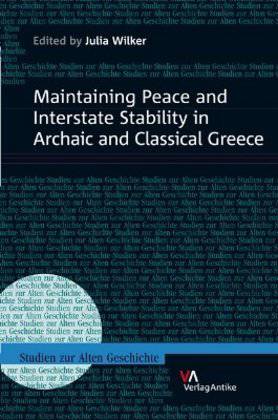
- Afhalen na 1 uur in een winkel met voorraad
- Gratis thuislevering in België vanaf € 30
- Ruim aanbod met 7 miljoen producten
- Afhalen na 1 uur in een winkel met voorraad
- Gratis thuislevering in België vanaf € 30
- Ruim aanbod met 7 miljoen producten
Zoeken
Maintaining Peace and Interstate Stability in Archaic and Classical Greece
€ 54,45
+ 108 punten
Omschrijving
This volume presents the contributions to a symposium held on May 9th, 2009 at the Humanities Center at Harvard University that focused on the question of how peace and interstate stability were established and maintained in archaic and classical Greece. In this context, different perspectives and approaches, ranging from pragmatic political goals and the definition and interpretation of key terms such as eirene to the underlying norms and their relevance for the realpolitik, were discussed. The articles in this volume shed new light on the various political instruments that the Greeks developed and employed to avoid war and to keep and organize peace. They focus on the analysis of commonly accepted terms that provided the basis for a settlement between conflicting parties and the analysis of various political strategies, including one-time arrangements to limit military conflicts, diplomatic efforts, legally binding agreements and more comprehensive concepts of interstate stability.
Specificaties
Betrokkenen
- Uitgeverij:
Inhoud
- Aantal bladzijden:
- 184
- Taal:
- Engels
- Reeks:
- Reeksnummer:
- nr. 16
Eigenschappen
- Productcode (EAN):
- 9783938032510
- Verschijningsdatum:
- 4/10/2012
- Uitvoering:
- Hardcover
- Formaat:
- Genaaid
- Afmetingen:
- 153 mm x 17 mm
- Gewicht:
- 361 g

Alleen bij Standaard Boekhandel
+ 108 punten op je klantenkaart van Standaard Boekhandel
Beoordelingen
We publiceren alleen reviews die voldoen aan de voorwaarden voor reviews. Bekijk onze voorwaarden voor reviews.










